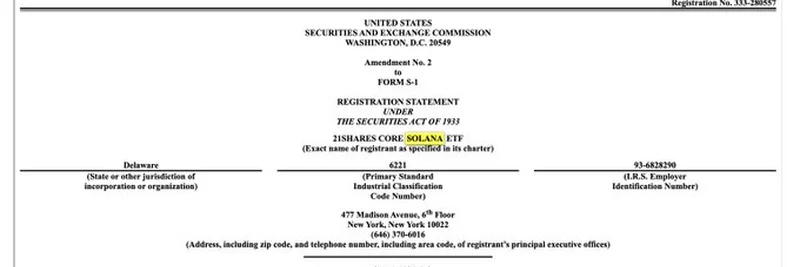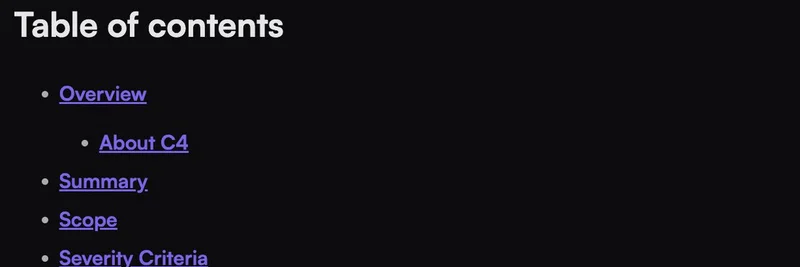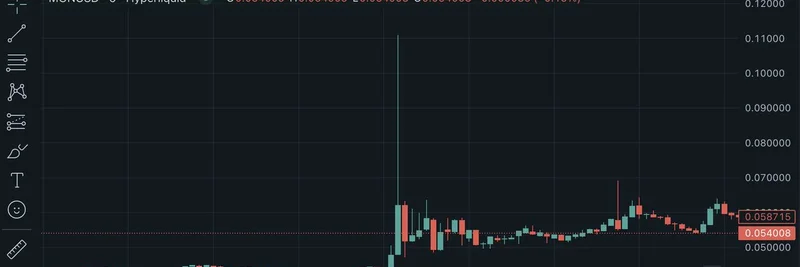Hey there, crypto enthusiasts! If you’ve been keeping an eye on the blockchain world, you’ve probably heard the buzz around Solana ($SOL) and its potential to break into the mainstream investment scene. Well, the excitement just got a boost with some big news from 21Shares, a leading crypto financial tech company. On July 30, 2025, MartyParty (@martypartymusic) dropped a tweet highlighting that 21Shares has filed an updated S-1A application for their Core Solana ETF, following a recent rule change by the CBOE. Let’s dive into what this means and why it’s stirring up the crypto community!
What’s the S-1A Filing All About?
For those new to the game, an S-1A is a registration statement filed with the U.S. Securities and Exchange Commission (SEC). It’s a key step for companies like 21Shares to get their exchange-traded funds (ETFs) approved for public trading. The updated filing, dated July 30, 2025, shows 21Shares is pushing forward with their plan to launch a Solana ETF, which would allow investors to gain exposure to $SOL without directly owning the cryptocurrency. The document includes details like the fund’s structure, management, and how it will track Solana’s performance—pretty exciting stuff if you’re into crypto investing!
The image shared in the tweet gives us a peek at the official SEC filing, showing 21Shares US LLC as the registrant, based in New York, with the goal of listing on the CBOE BZX Exchange. This move signals a maturing market where institutional players are taking Solana seriously.
The CBOE Rule Change: A Game Changer?
So, what triggered this update? The CBOE, a major U.S. options exchange, recently tweaked its rules for generic exchange-traded products (ETPs). This change opens the door for ETFs like the 21Shares Core Solana ETF to move closer to approval. For crypto enthusiasts, this is a big deal because it could pave the way for more regulated investment options, attracting big players like hedge funds and pension funds. The rule adjustment simplifies the opening process for these financial products, making it easier for Solana to join the ranks of Bitcoin and Ethereum ETFs.
Why This Matters for $SOL Investors
If you’re holding Solana or thinking about jumping in, this news could be a bullish signal. The filing suggests growing confidence in Solana’s blockchain, known for its high-speed transactions and growing ecosystem of decentralized apps (dApps). Plus, with institutional interest on the rise—think of the $173 million invested in Solana-based projects in Q3 2024—this ETF could drive more demand for $SOL. More demand often means higher prices, so keep an eye on those charts!
The 21Shares Core Solana ETF won’t involve staking SOL, meaning it’s a straightforward way to invest without the technicalities of running validators. Coinbase will act as the custodian, ensuring the fund’s assets are securely held. This focus on simplicity could appeal to both new and seasoned investors.
What’s Next?
The SEC still needs to review and approve the S-1A, which can take time. But with the CBOE’s rule change and 21Shares’ persistence (they first filed for a Solana ETF back in June 2024), things are looking promising. The crypto community on X is already buzzing, with users like @CameronSto85869 and @Sosaingram365 calling it a “big move” and a “bullish signal.” If approved, this could be a milestone for Solana, potentially elevating it alongside top cryptocurrencies.
Stay Tuned at Meme Insider
At Meme Insider, we’re all about keeping you in the loop on the latest blockchain trends, especially those that might impact meme tokens and beyond. This Solana ETF update is a reminder of how fast the crypto space is evolving. Whether you’re a blockchain practitioner or just curious, bookmark our site for more insights and a rich knowledge base to level up your game. What do you think this means for $SOL? Drop your thoughts in the comments—we’d love to hear from you!



